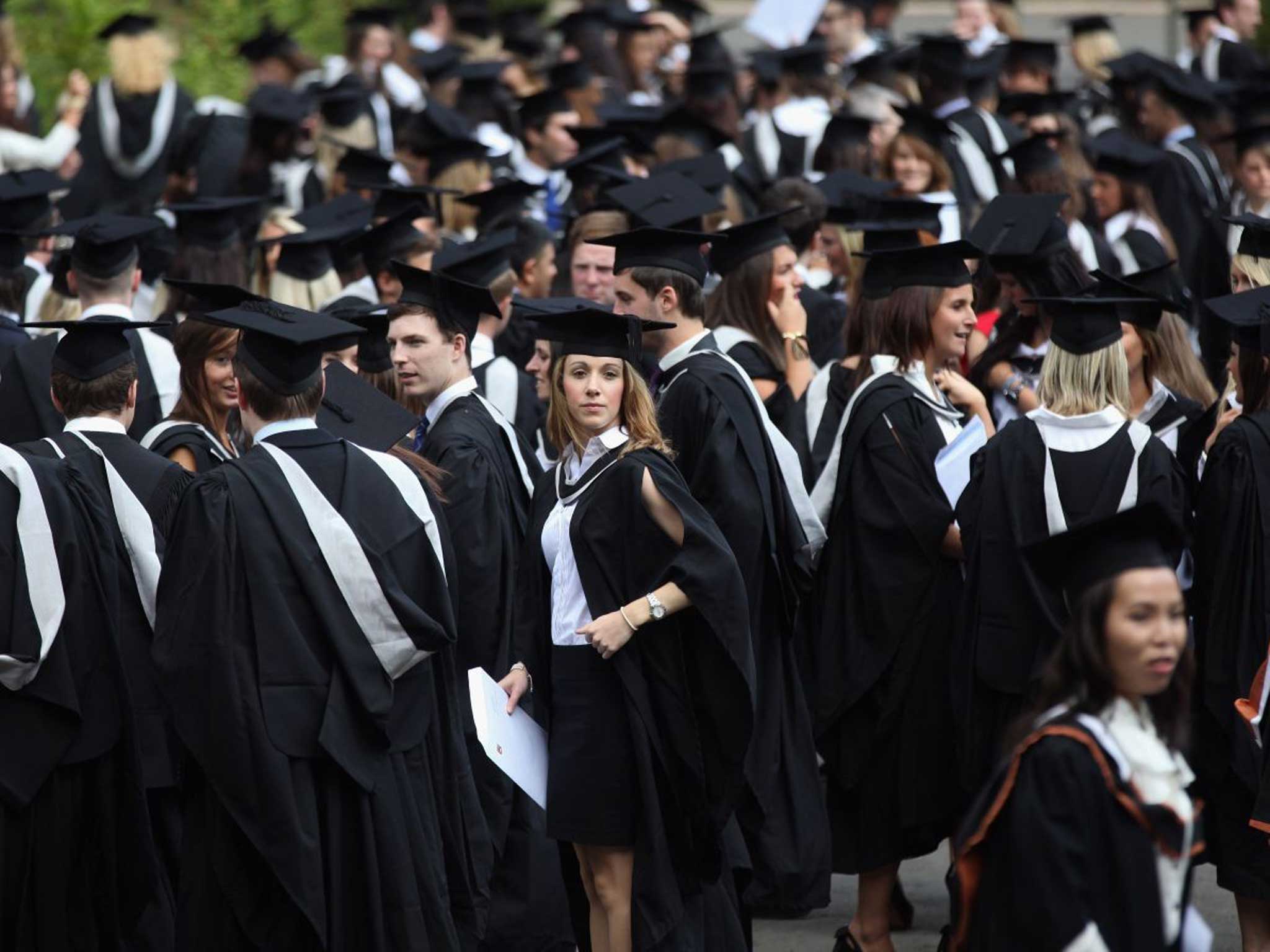Universities are 'not just for getting a job,' says one of Britain's leading academics
Professor Sir Christopher Snowden defends the idea of education for its own sake and the importance of research to the economy

Your support helps us to tell the story
From reproductive rights to climate change to Big Tech, The Independent is on the ground when the story is developing. Whether it's investigating the financials of Elon Musk's pro-Trump PAC or producing our latest documentary, 'The A Word', which shines a light on the American women fighting for reproductive rights, we know how important it is to parse out the facts from the messaging.
At such a critical moment in US history, we need reporters on the ground. Your donation allows us to keep sending journalists to speak to both sides of the story.
The Independent is trusted by Americans across the entire political spectrum. And unlike many other quality news outlets, we choose not to lock Americans out of our reporting and analysis with paywalls. We believe quality journalism should be available to everyone, paid for by those who can afford it.
Your support makes all the difference.Britain's leading university official has dismissed the idea that going to university is all about getting a well-paid job.
Professor Sir Christopher Snowden, president of Universities UK, defended the idea of education for its own sake and criticised those trying to promote higher education for placing too much emphasis on vocational skills to make money.
He spoke out as it emerged that complaints by students had risen to record levels, with more than 20,000 taking grievances to their universities last year. This was welcomed by Universities minister David Willetts as a sign that students were being more "demanding" after the Government allowed course fees to rise to up to £9,000 a year.
Sir Christopher, speaking ahead of tomorrow's launch of Universities Week, which is designed to showcase British research, conceded that students were thinking of their future employment much earlier nowadays, possibly at the end of the first year. The number opting for work placements has soared, with about 50 per cent of his own students seeking internships.
But he defended the idea of education for its own sake, rather than simply a means of getting a job. "Not everybody goes to university for that. I still very much believe there is a significant lifetime benefit to be got from going to university," said Sir Christopher, who is also vice-chancellor of Surrey University. "After all, I got a degree in electronic engineering – I don't do very much of that in my present team. One of my finance team has a degree in classics."
He said students should not be taught to limit themselves to studying only what will benefit them in their future careers. "We don't say we should scrap languages or maths at school if you're going to become a shop assistant. You wouldn't dream of doing it," he said. "Trying to measure everything by the X number of pounds it's going to get you, that's not the right way of doing it."
For Universities Week, about 50 institutions will take part in an exhibition of their work at the Natural History Museum, allowing the public to meet research teams and participate in research activities. Sir Christopher said it was important to highlight the value of UK universities' research to the British economy. Its contribution has risen from £59bn to £74bn in a year.
That, he said, was in spite of the fact that the Government is spending proportionately less of the country's wealth on research than most of its competitors. In the long term, he argued, that could have an effect on its world-class ranking for research – hence the need to win over the public to the value of their universities. "There are significant achievements in groundbreaking research into health, for instance," he said.
Despite prompting concerns over job prospects, Sir Christopher claimed that fees were not the obstacle to recruitment that they were once thought to be. "It's the actual subsistence level that causes more problems, the cost of living," he said.
Join our commenting forum
Join thought-provoking conversations, follow other Independent readers and see their replies
Comments